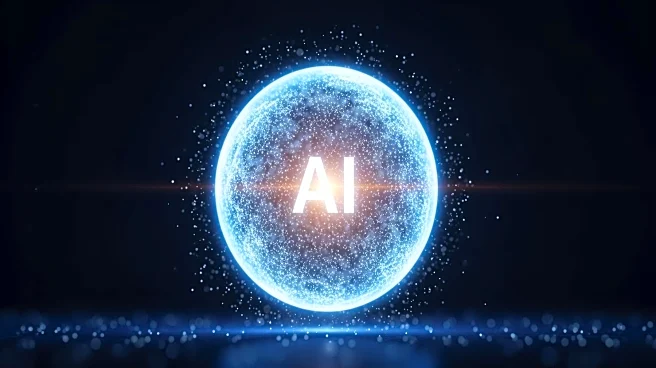What's Happening?
AI chatbots, such as ChatGPT and Claude, are transforming the way users interact with information online. Unlike traditional search engines that provide optimized links, these chatbots interpret and summarize
information, allowing users to ask follow-up questions and receive more personalized responses. ChatGPT, for instance, is widely recognized for its conversational capabilities, offering both free and premium versions. Other notable chatbots include Google's Gemini and Microsoft's Copilot. These tools are increasingly used for a variety of tasks, from answering questions typically searched on Google to assisting with work-related tasks like document summarization and email editing. The chat component of these AI tools differentiates them from traditional search engines, making them valuable for users seeking more context and personalized advice.
Why It's Important?
The rise of AI chatbots signifies a shift in how individuals access and process information, impacting industries such as technology, business, and education. By providing more personalized and interactive experiences, these tools can enhance productivity and decision-making processes. For businesses, AI chatbots offer potential improvements in customer service and operational efficiency. However, users must remain cautious of the potential for misinformation, as generative AI can sometimes produce inaccurate or fabricated content. The integration of AI chatbots into daily life could lead to significant changes in how people approach problem-solving and information gathering, potentially reducing reliance on traditional search engines.
What's Next?
As AI chatbots continue to evolve, their applications are expected to expand further into various sectors, including healthcare, finance, and education. Developers are likely to focus on improving the accuracy and reliability of these tools to mitigate the risk of misinformation. Additionally, businesses may increasingly adopt AI chatbots to streamline operations and enhance customer interactions. The ongoing development of AI technology will likely lead to more sophisticated and versatile chatbots, capable of handling complex queries and providing deeper insights. Stakeholders, including tech companies and policymakers, will need to address ethical considerations and establish guidelines to ensure responsible use of AI chatbots.
Beyond the Headlines
The widespread adoption of AI chatbots raises ethical and privacy concerns, particularly regarding data security and the potential for bias in AI-generated responses. As these tools become more integrated into everyday life, there is a need for transparent and accountable AI systems to protect user data and ensure fair treatment. Additionally, the cultural impact of AI chatbots may influence communication norms and expectations, as people become accustomed to interacting with machines in a conversational manner. Long-term, the evolution of AI chatbots could reshape societal interactions and redefine the boundaries between human and machine communication.









